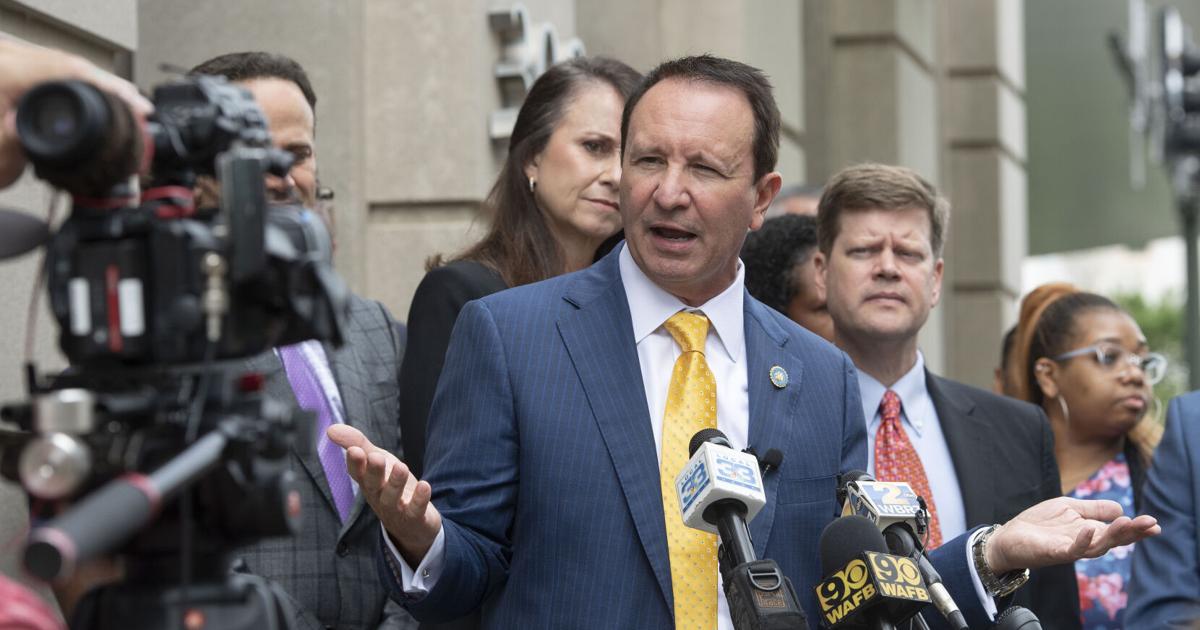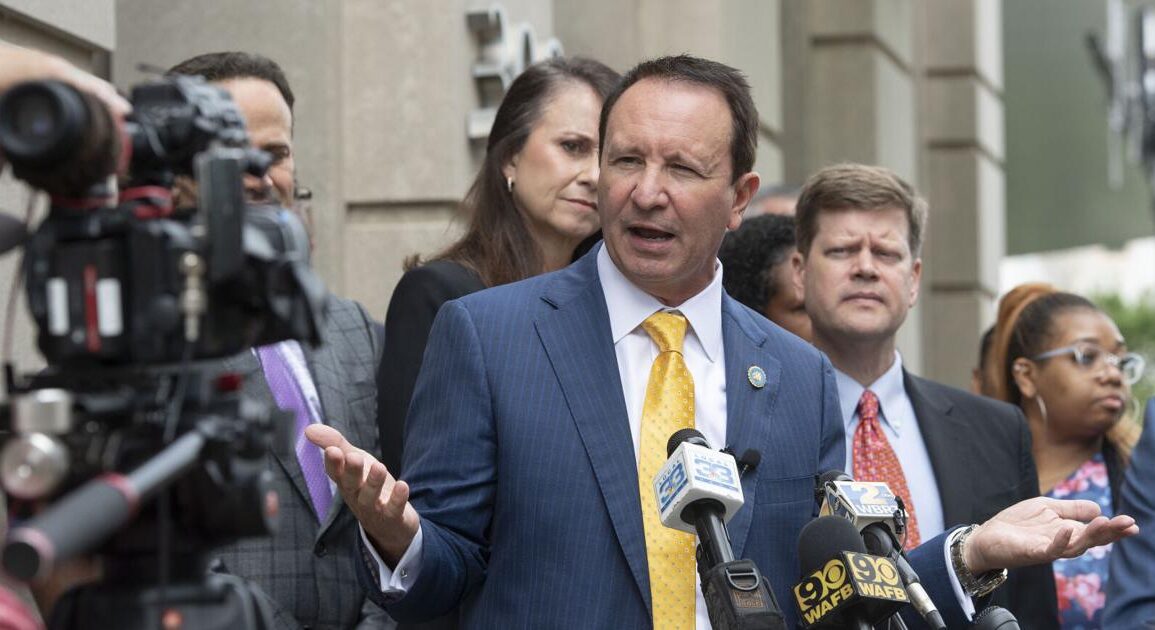
After the Louisiana Board of Pardons and Committee on Parole found itself in the unusual position of being sued by Attorney General Jeff Landry over death row prisoners’ historic clemency requests, the board hired a Baton Rouge attorney to fight its case in court.
That lawyer, Art Smith, last week asked Landry to recuse himself from the lawsuit, which aims to halt the requests on procedural grounds. Smith wrote to Landry that the attorney general would use the suit to build political capital for his race for governor and said it’s improper for Landry to be “suing (his) own clients” because the pardon board is a state agency.
Landry responded a few days later by firing Smith from his contracted position representing the board, saying Smith himself had a conflict of interest in the case.
“Had you performed any legal research on this issue, you would know that the Attorney General’s unique status requires accommodation, not exemption under the rules of professional conduct,” Landry wrote to Smith in a Sept. 26 letter obtained by this news organization. “Your letter indicating that a conflict exists calls into question your competency as a lawyer… You are not authorized to serve as legal counsel.”
Though Landry didn’t detail the conflict, and Smith declined Monday to comment, a Landry spokesperson said Smith has pending litigation against DOC and the pardon board.
Louisiana’s attorney general has authority to approve or reject lawyers hired by state agencies to represent them in civil matters. But doing so in a case where Landry’s office itself is a plaintiff is unusual. Lawyers for death row prisoners who have asked for clemency say Landry, a Republican and ardent death penalty supporter who is widely viewed as the front-runner in the Oct. 14 gubernatorial primary election, overstepped his authority in a bid to rig the clemency process.
“The Attorney General’s actions in interfering with the Board’s choice of counsel… have the appearance of profound conflict of interest,” attorneys for the death row prisoners wrote in court filings Monday.
Court records show attorneys from Sher Garner, a politically active New Orleans law firm that has represented Landry and Gov. John Bel Edwards in other high-profile issues, have since been named as the pardon board’s counsel. Attorneys for the death row prisoners said that step amounted to Landry handpicking his opposing counsel.
“Sher Garner has represented the Governor and other state agencies in numerous cases, even in those where the Attorney General was adverse to the Governor,” said Millard Mule, a Landry spokesperson. “In all of them, our office approved of their appointment as required by law.”
Dane Ciolino, a Loyola University law professor who represents attorneys charged with disciplinary violations, said the case illustrates the peculiarity of the state law that allows attorneys general to select counsel for state agencies.
“It’s a very unusual, kind of ‘Alice in Wonderland’ world. … The statute purports to give the AG the authority to make litigation decisions on behalf of his client,” Ciolino said.
Three days after Landry dismissed Smith from the case, the pardon board convened Friday evening with the new Sher Garner lawyers in a closed-door executive session to discuss a potential settlement to the death row lawsuit. The board’s director, Francis Abbott, said Monday that there had been no movement on a possible agreement, and death row prisoners’ attorneys echoed that Monday.
Under a draft of the agreement included in court filings, however, the pardon board would agree to cancel 19 currently scheduled clemency hearings and convert those hearing dates to “administrative” hearings, at which the board would decide whether to grant a clemency hearing at all. That essentially means that, at most, five of the 55 clemency applicants would receive hearings on their applications before Edwards leaves office in January.
The spat over the board’s legal representation is the latest example of political tension underpinning the historic push to obtain clemency for Louisiana death row prisoners. Prosecutors, police unions and conservative activists — many of whom oppose the applications — have described the effort as an attempt to seize a sliver of opportunity before Edwards exits the Governor’s Mansion.
Edwards, an avowedly Catholic Democrat from a long line of sheriffs, came out in support of abolishing the death penalty earlier this year after holding his tongue on the issue for much of his governorship. A few months later, attorneys for 55 of the 57 of the people on Louisiana’s death row asked the pardon board to soften their death sentences to life-in-prison without the potential for parole.
Landry and other prosecutors say clemency would be a slap in the face to prisoners’ victims and their families as many on death row have been convicted of murders. Landry in September joined a lawsuit challenging the validity of the clemency requests, mostly on procedural grounds.
But supporters, including the Vatican, local clergy and others say the death penalty is inhumane and raises the potential for wrongly convicted people to be put to death. Clearing Louisiana’s death row “would be a monumental step towards the abolition of the death penalty,” Archbishop Vincenzo Paglia, president of the Vatican’s Pontifical Academy of Life, wrote in a letter to Edwards last week.
The board and Edwards would need to sign off for the clemency to take effect. If they do, it would mark an historic turn in the way Louisiana regards capital punishment.
This post was originally published on this site be sure to check out more of their content.







